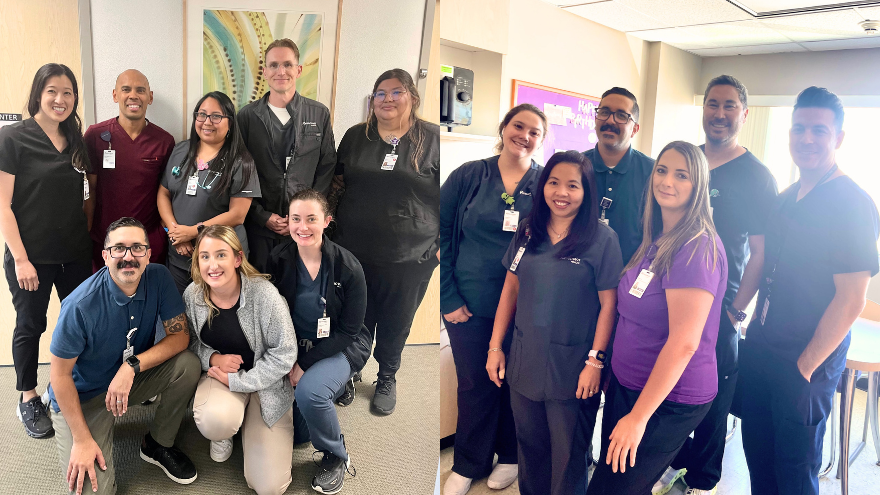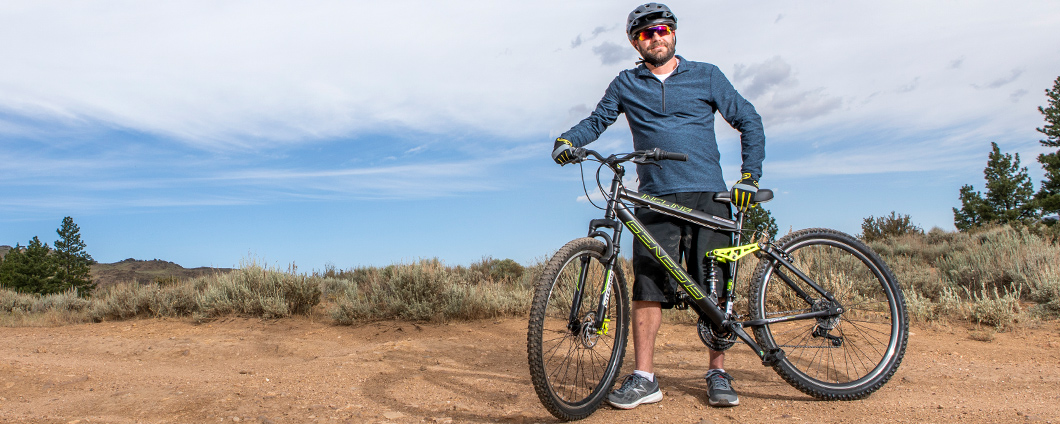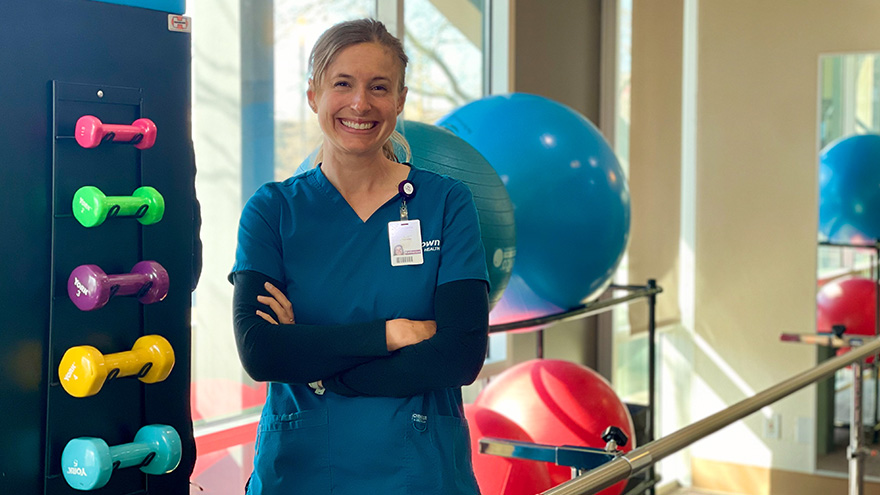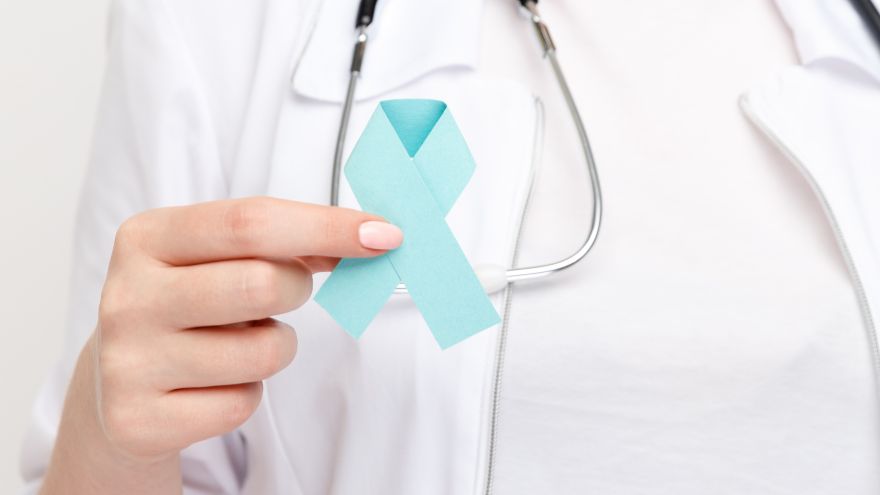Search
Results for 'rehabilitation'
Clear-
-
24Apr
Please join us for Renown Health’s free one-hour class for Chronic Obstructive Pulmonary Disease (COPD) education! Our goal is to give you the knowledge to better manage your COPD by increasing your understanding of the disease process, medications and how to use them and creating an action plan you can use every day. This program is offered every: Second Tuesday of the month from 4pm – 5pm in Renown Health Pulmonary Rehabilitation classroom The last Thursday of the month from 4pm – 5pm in the Renown Rehabilitation Hospital classroom A link to the virtual meeting will be sent 1 day before the class via email.
Read More About COPD Education & Support
-
-
-
27Mar
Please join us for Renown Health’s free one-hour class for Chronic Obstructive Pulmonary Disease (COPD) education! Our goal is to give you the knowledge to better manage your COPD by increasing your understanding of the disease process, medications and how to use them and creating an action plan you can use every day. This program is offered every: Second Tuesday of the month from 4pm – 5pm in Renown Health Pulmonary Rehabilitation classroom The last Thursday of the month from 4pm – 5pm in the Renown Rehabilitation Hospital classroom A link to the virtual meeting will be sent 1 day before the class via email.
Read More About COPD Education & Support
-
-
-
31Jul
Please join us for Renown Health’s free one-hour class for Chronic Obstructive Pulmonary Disease (COPD) education! Our goal is to give you the knowledge to better manage your COPD by increasing your understanding of the disease process, medications and how to use them and creating an action plan you can use every day. This program is offered every: Second Tuesday of the month from 4pm – 5pm in Renown Health Pulmonary Rehabilitation classroom The last Thursday of the month from 4pm – 5pm in the Renown Rehabilitation Hospital classroom A link to the virtual meeting will be sent 1 day before the class via email.
Read More About COPD Education & Support
-
-
When Is It Time to See a Physiatrist
Physiatry (fi-zahy-uh-tree), also referred to as physical medicine and rehabilitation, encompasses the diagnosis, prevention and treatment of disabilities or injuries related to the brain, nerves, bones and muscles. The goal of this specialty is to maximize physical functioning, greatly decrease or eliminate pain, foster independence and improve quality of life for those suffering with a disability, chronic pain and physical impairments. Who Is It for? Physiatry can help patients with functional deficits and secondary medical conditions as a result of the following: Amputation Brain Injury Osteoarthritis Spasticity and Movement Disorders Spinal Cord Injury Spine Pain Sports-Related Injuries Stroke Some of these medical conditions can often cause chronic pain or impede physical functioning, ultimately affecting a person’s overall well-being and making it difficult for them to sustain a desired quality of life.
-
Department Spotlight: Physiatry
Pain is a top reason that Americans seek access to healthcare. In fact, according to the U.S. Pain Foundation, chronic pain affects nearly 50 million people across the country. More than likely, you know someone who has been impacted by chronic or acute pain. Fortunately, there is a talented team of healthcare professionals committed to rehabilitating and enhancing the life of any patient living with pain. At Renown Health, these team members represent the Physiatry department, who are charged with a goal of maximizing physical function, managing pain and nurturing independence. Headquartered at Renown South Meadows Medical Center, patients suffering with a disability, chronic pain and physical impairments can rest assured that they have the most caring and compassionate physiatry experts on their side throughout the entire physical rehabilitation process. What is Physiatry? Physiatry (also known as physical medicine and rehabilitation, or PM&R), is a medical specialty that helps diagnose and treat conditions related to the musculoskeletal and nervous systems. Unlike other medical fields that often use surgery or medication, physiatry emphasizes non-invasive techniques, therapies and interventional procedures to help with pain and improve physical function. Renown’s physiatry team has a holistic approach to care, combining medical expertise with personalized rehabilitation strategies to support long-term health and independence. Physiatry is hyper-focused on diagnosing, managing and treating conditions that affect physical function and quality of life. The Physiatry Philosophy Our Physiatry team’s treatment philosophy centers around a multidisciplinary approach that combines medical care with rehabilitation and healthy lifestyle changes. They offer a variety of programs and services, including: Home Exercise Programs: Customized exercises designed to strengthen muscles, improve flexibility and support recovery. Physical Therapy: Hands-on care from skilled therapists who guide patients through techniques to restore function and reduce pain. Well-Being and Lifestyle Support: Emphasizing overall health and encouraging lifestyle changes that support physical and mental well-being. At Renown, the Physiatry department is full of friendly faces, including: PM&R and pain medicine physicians (also known as physiatrists) Medical assistants Physician scheduling coordinators Patient access representatives Practice site leaders Physiatrists set each patient up for success with education, treatment planning and management. They take advantage of cutting-edge technologies and interventions for pain, such as: Epidural Steroid Injections (ESIs) Facet Joint Injections Radiofrequency Ablation (RFA) Trigger Point Injections Joint Injections (Knee, Shoulder, Hip) Physiatrists are also masters of multidisciplinary care, coordinating with members of a patient’s healthcare team (including physical therapists) to ensure they have the best treatment plan possible. Playing a crucial supportive role, physiatry medical assistants (MAs) assist our physiatrists in caring for patients on both a clinical and administrative level. From helping during procedures to providing education and guidance, these medical professionals are key in ensuring each patient’s visit – and as a result, their rehabilitation journey – is successful. “My normal day in Physiatry is very smooth,” said Rosita Gans, Medical Assistant. “I make sure my schedule is at 100% to prioritize patient needs. It helps that everyone is so respectful and friendly.” Our patient access representatives (PARs) and physician scheduling coordinators are the front faces of physiatry. They serve as a patient’s first line of communication when checking in, making an appointment, handling insurance verifications and several aspects of follow-up – all with a smile on their faces. “My job as a PAR involves checking patients in and out, verifying their insurance and demographic information, scheduling and following up on appointments, referrals to Special Procedures and more,” said Andrea Ruiz, Patient Access Representative. “I am in contact with patients on a daily basis.” “It’s all about making sure every patient is taken care of in a timely manner,” added Kasey Sinfellow, Physician Scheduling Coordinator. At the core of keeping things running, you’ll find Antonio Quintana, Practice Site Leader. Thanks to his expert leadership skills and can-do attitude, his department has been able to reach new heights. A large part of this team’s success lies in their approach to the practice of physiatry. For them, there is no such thing as a “cookie cutter” treatment plan. Dr. Casey Keating, a pain management physician working with the Physiatry team states, “We understand that there is no ‘one size fits all’ when it comes recovery. We come up with a plan of action customized to meet your needs.”
-
The Road to Recovery Close to Home
Meet Connor Smith Life was hectic for Connor Smith. He had just finished at the top of his class at both the fire academy and paramedic school and was looking forward to starting work in northern Nevada. It was winter 2019, and he was ready to have some fun. The plan was to ride ATVs at Sand Mountain with his brother Cody, dad Lance and some friends, but a jump would change everything. Connor’s ATV took off but landed awkwardly, and he remembers immediately knowing he was paralyzed. Connor’s mom, Dana Shugar, was at home when she received the upsetting call from Cody, who told her he had an accident. Connor was flown to Renown Regional Medical Center, the area’s only Level II Trauma Center. After a seven-hour emergency surgery, Dana learned that Connor would live but only had a slight chance of walking again due to a spinal fracture. “The surgeon saved his life. It’s amazing how your life can change in a matter of seconds,” she said. Once his condition stabilized, Connor moved to the Renown Rehabilitation Hospital and began physical rehabilitation. “Thank God for the people at rehab,” Dana said. “Dr. Pence, the therapists, nurses and all the employees were a wonderful support system, explaining everything and answering all our questions. The kindness they showed got me through.” Connor agrees, calling the Renown rehab team nothing short of amazing.
-
Spine, Sports and Pain Management
How We Can Help You may benefit from treatment for neuromuscular (nerve, muscle and bone) disorders – that cause pain and impair normal functions. But, first, consult your primary care physician for a referral to Renown Health's Spine, Sport & Pain Management. Dr. Keating, Medical Director and his colleagues, Dr. Su and Dr. Storm, will customize a treatment plan that best suits your needs and lifestyle while providing the most effective care possible. For more information: Call 775-982-3608 | Fax 775-982-8001
-
Recognizing World Lymphedema Day
To recognize World Lymphedema Day, Katherine Bunker, Physical Therapist and Certified Lymphedema Therapist (PT, DPT, CLT) at Renown, shares her experience helping those with lymphedema and lymphatic disease thrive in their daily lives. Each year, World Lymphedema Day continues to be an advocate-driven celebration and global education opportunity on what it means to live with lymphedema and lymphatic disease. We explore why this cause deserves global recognition each year on March 6 below. Types of Lymphedema Lymphedema is an abnormal collection of protein-rich fluid that causes swelling just beneath the skin. The fluid, which is filtered through the lymph nodes, makes up a network of tissues that help the body get rid of toxins, waste and other unwanted substances. According to Katherine Bunker, PT, DPT, CLT at Renown Health, this collection of fluid causes swelling, usually in the arms or legs, but can happen in other areas too. It can also cause discomfort, restricted movement and may increase the risk of infections.
-
Learn How to Manage Lymphedema
Katherine Bunker, Physical Therapist and Certified Lymphedema Therapist (PT, DPT, CLT) at Renown, discusses how patients can manage lymphedema with changes to daily routines along with diet and exercise. Lymphedema is a condition that affects millions of people around the world. It is a chronic and progressive disorder that results in swelling of the arms, legs, or other parts of the body due to an accumulation of lymph fluid. Lymphedema can occur because of cancer treatments, surgery, or other medical conditions. Managing Lymphedema Treatments to help reduce symptoms such as pain, swelling and discomfort associated with lymphedema can include compression garments, exercise, skin care, manual lymphatic drainage and pneumatic compression. The goal is to avoid triggering the onset of lymphedema. Lymphedema can present itself immediately after surgery or radiation. It can appear months later or even years later. There are many factors that influence the development of lymphedema which is why prevention is so important. If you have had injury or disruption to your lymphatic system, then: Avoid injuries to the skin near the affected area. For example: wearing gloves during gardening, using bug spray to ward off mosquitos, covering your limbs while playing with pets, keeping nails clean and avoiding cutting too close to cuticle, utilizing electric razors at the armpit (instead of a traditional razor)., Avoid blood pressure readings to the affected limb or request blood pressure to be taken manually, not by a machine. Avoid heat like saunas, hot tubs, sunburns, hot packs, and even massages. Avoid tight jewelry like rings or bracelets, which can be too tight.
-
Life after Lymphedema Diagnosis: What to Expect
Managing lymphedema effectively is essential for enhancing the quality of life for individuals affected by this condition. Katherine Bunker, a Physical Therapist and Certified Lymphedema Therapist (PT, DPT, CLT) at Renown, has expertise in this area and her insights offer valuable strategies for managing lymphedema. Lymphedema is a chronic condition characterized by swelling in one or more limbs due to a blockage in the lymphatic system. This condition can result from cancer treatments, surgery, infection, or can sometimes be congenital. While it can be challenging to live with lymphedema, understanding the condition and adopting specific lifestyle changes and strategies can significantly improve the quality of life. Understanding Lymphedema Educating yourself about lymphedema is crucial. Understanding the causes, symptoms, and potential complications can provide you with the tools to manage the condition proactively. Lymphedema can lead to discomfort, decreased mobility, and in severe cases, infections such as cellulitis. Therefore, recognizing the early signs and knowing when to seek medical advice is essential. Medical Management Consulting with healthcare professionals who specialize in lymphedema is critical. A physiotherapist or occupational therapist trained in lymphedema management can tailor a treatment plan for you that can include the following: Compression Therapy - Wearing prescribed compression garments can help move the lymph fluid and reduce swelling. It’s essential to get fitted by a professional and understand how to use these garments correctly. Manual Lymphatic Drainage (MLD) a gentle massage technique that encourages the movement of lymph fluid out of the affected limb. It’s typically performed by a trained therapist but ask about self-massage techniques you can do at home.
Read More About Life after Lymphedema Diagnosis: What to Expect
-
-
11Mar
Please join us for Renown Health’s free one-hour class for Chronic Obstructive Pulmonary Disease (COPD) education! Our goal is to give you the knowledge to better manage your COPD by increasing your understanding of the disease process, medications and how to use them and creating an action plan you can use every day. This program is offered every: Second Tuesday of the month from 4pm – 5pm in Renown Health Pulmonary Rehabilitation classroom The last Thursday of the month from 4pm – 5pm in the Renown Rehabilitation Hospital classroom A link to the virtual meeting will be sent 1 day before the class via email.
Read More About COPD Education & Support
-
-
-
13May
Please join us for Renown Health’s free one-hour class for Chronic Obstructive Pulmonary Disease (COPD) education! Our goal is to give you the knowledge to better manage your COPD by increasing your understanding of the disease process, medications and how to use them and creating an action plan you can use every day. This program is offered every: Second Tuesday of the month from 4pm – 5pm in Renown Health Pulmonary Rehabilitation classroom The last Thursday of the month from 4pm – 5pm in the Renown Rehabilitation Hospital classroom A link to the virtual meeting will be sent 1 day before the class via email.
Read More About COPD Education & Support
-






